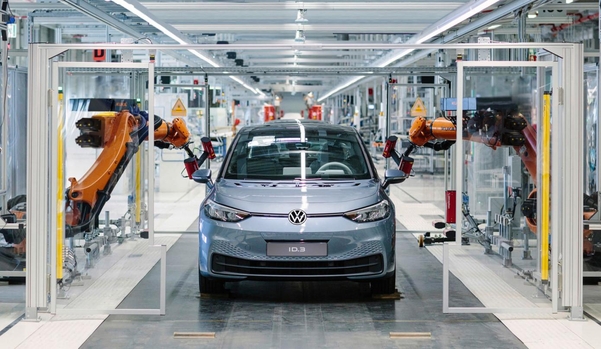Enter 2021.03.17 06:00
Geely, which is expanding the proportion of electric vehicles, plans to invest a total of 30 billion yuan (about 5.2 trillion won) for this project. When the project is put into operation, Geely is expected to compete in earnest with Tesla, which has penetrated the Chinese electric vehicle market.

Automakers, which have been supplying batteries that are the heart of electric vehicles from chemical companies, are in earnest trying to secure their own battery technology. The strategy is to increase price competitiveness in the global’electric vehicle war’ by establishing a stable supply chain of batteries, which are key components, while increasing the spread of electric vehicles.
The Volkswagen Group has set a goal of reducing the cost of batteries for low-cost electric vehicle models by half and 30% for popular models by establishing a mass production system, introducing innovative production methods, and reducing costs through recycling. “We aim to improve life and performance while reducing the cost and complexity of batteries,” said Thomas Schmal, director of technology at the Volkswagen Group. “Using our economies of scale, we can reduce the cost of battery systems in kilowatt hours (kWh). “I will lower it to an average of 100 euros or less per person.”

Toyota of Japan is focusing on developing all-solid batteries, which are called next-generation batteries. An all-solid battery that converts the electrolyte into a solid is called a’dream battery’ because it has a significantly lower risk of explosion and can hold more energy in the battery. Toyota plans to unveil an electric vehicle equipped with an all-solid-state battery that it developed this year and establish a mass production system in 2025.
The reason why automakers make large-scale investments and start producing batteries on their own is to devise batteries with various performances in addition to stable supply and cost reduction. Currently, there are only one or two electric vehicles released by the finished car brand, but if the electric vehicle conversion accelerates, electric vehicles are expected to appear in the luxury sedan, sports car, large sports utility vehicle (SUV), and commercial vehicle sector as well as entry-level passenger cars. This is a result of the judgment that it is reasonable to develop the technology directly rather than ordering one by one from the battery supplier because the performance required for the battery is different for each segment.

Hyundai Motor (005380)Is somewhat passive in producing its own battery. We are preparing for battery development and production, but for the time being, we are in a position to produce electric vehicles through cooperation with battery companies. Albert Beerman, president of Hyundai Motor Group’s R&D division, said, “Currently, at the’E-GMP Digital Discovery’ event in December last year, LG Chem (051910), SK innovation (096770)And Samsung SDI are satisfied with the cooperation with three domestic battery companies, and I did not feel the need for independent production of batteries,” he said. “The battery self-procurement is limited to some, and the basic supply and demand will be handled by the battery companies.”
